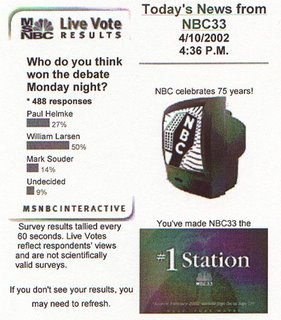US Savings Rate, is too high bad?
The savings rate is now being deemed as a real problem in the U.S., not because it is too low, but because it is increasing. The savings rate has always been substantially higher prior to the 1970’s. The savings rate back in the 1910’s was over 15%. Our problem is we have had deficit spending since 1958 and few remember or can even comprehend what saving is.
We have allowed our government representatives to spend, spend and spend more. Each year we turn more and more of our discretionary spending over to the government. You may not see it in the form of increased taxes, but you certainly see the underlying symptom, inflation.
Tonight I heard on the Nightly Business Report that the savings rate has increased so much that it is dramatically hurting our economy. They even had a person who wrote a book on the subject decades ago about being thrifty. Our problem is not saving too much, but spending too much, for too long without any way to pay for it. This recession has been going on for two years. Our country has spent the sum total of 200 years of wealth in the past 52 years. Do I agree that increased savings is hurting our economy at this moment, yes? However, our current problem is not and was not caused by our increased savings today, but by our lack of saving over 52 years. Therefore, how long will it take to correct these decades of lack of saving?
As I said in the Debate between Souder, Montagano and myself, I would have voted no for the bank stimulus. It would be better to let those few banks fail, wash the market of the bad players and identify which assets are bad than to pump money into all banks, reducing lending and extend the time it takes to determine good from bad assets. My other concern was it would not stop at one bailout. The more government spends now, the longer and deeper our recession now will impact.
The recession of 2000 has impacted our current problem as has the 1992, 1986, 1981 and the doldrums of the 70’s. Each one of these past recessions have affected the current one we are in now because they never addressed the root cause, lack of saving, increased government borrowing and less discretionary spending. Each recession has set us up for a larger fall because we never treated the root cause.
Most families/workers are living paycheck to paycheck. If they lose a job they run into problems. The more that run into problems leads to the entire economy having problems. Credit card debt has allowed higher economic growth in the past than what it would have. So had we shaved a fraction of all past years economic growth, we would have less credit card debt, more savings and a better ability to handle recessions. We can extend this to mortgages as well. A higher down payment and shorter term would reduce home sales yearly, but it would have strengthened a family’s ability to withstand a down turn because they would have had savings on which to survive.
Our government has always attempted to stimulate our economy beyond normal so that they could project higher tax revenues to spend more money on programs they deemed necessary.



1 Comments:
Savings rates are being increased to help people develop a sense of saving for the rainy day. Due to the recent meltdown in the economy the government is more focused on savings rather than on spending.
Post a Comment
<< Home